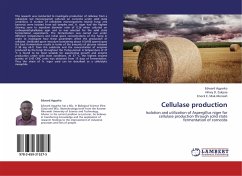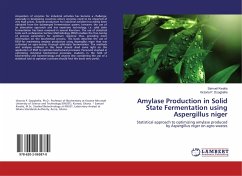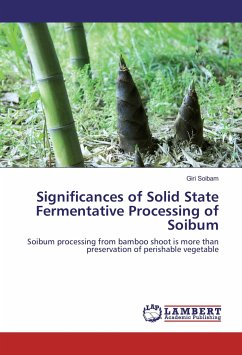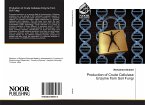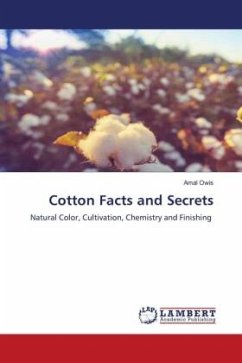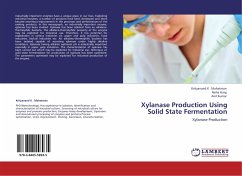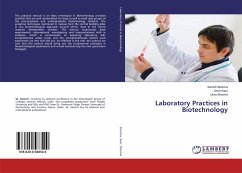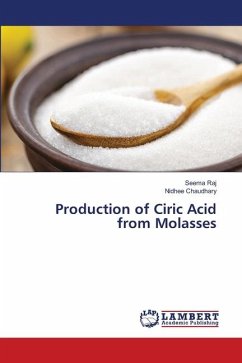This research was conducted to investigate production of cellulase from a cellulolytic soil microorganism cultured on corncobs under solid state conditions. A number of cellulolytic microorganisms (mainly fungi and bacteria) were isolated from soil samples and, A. niger had the highest clearing zone to mycelium diameter ratio of 0.26 when cultured on carboxymethylcellulose agar and so was selected for the solid state fermentation experiments. The fermentation was carried out under different temperatures and initial spore concentrations of the fungi in order to investigate how these parameters affect the production of cellulase. Undiluted spore inoculum (containing about 4.5x106 spores) gave the best fermentation results in terms of the amounts of glucose released (1.38 mg ml-1) from the substrate and the concentration of enzymes produced by the fungi throughout the 15-day period. A temperature of 37 °C is found to be most suitable for exponential growth and enzyme production under solid state conditions. At 37 °C, the highest enzyme activity of 0.45 CMC units was obtained from 15 days of fermentation. Thus the strain of A. niger used can be described as a cellulolytic mesophile.
Bitte wählen Sie Ihr Anliegen aus.
Rechnungen
Retourenschein anfordern
Bestellstatus
Storno

